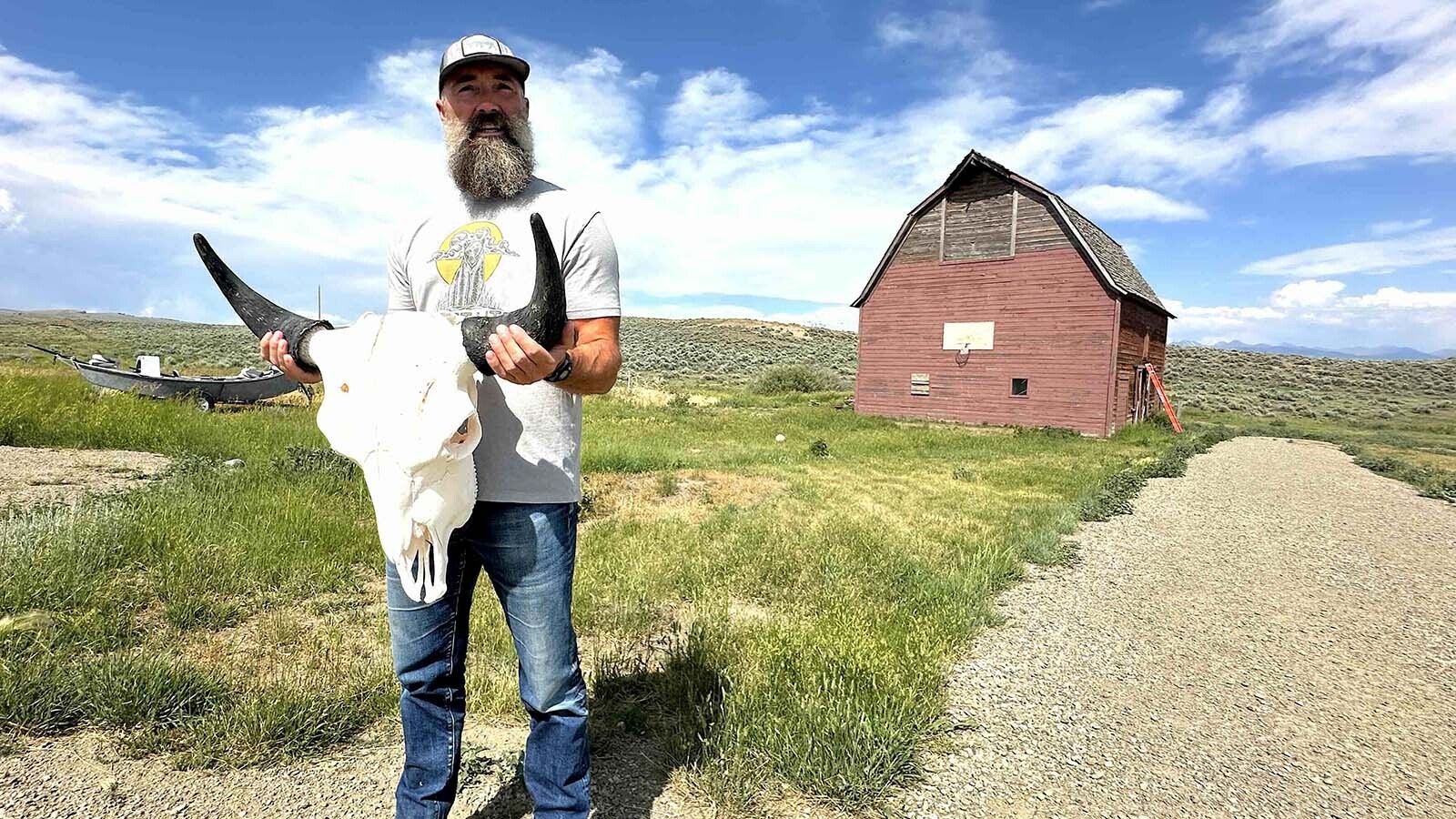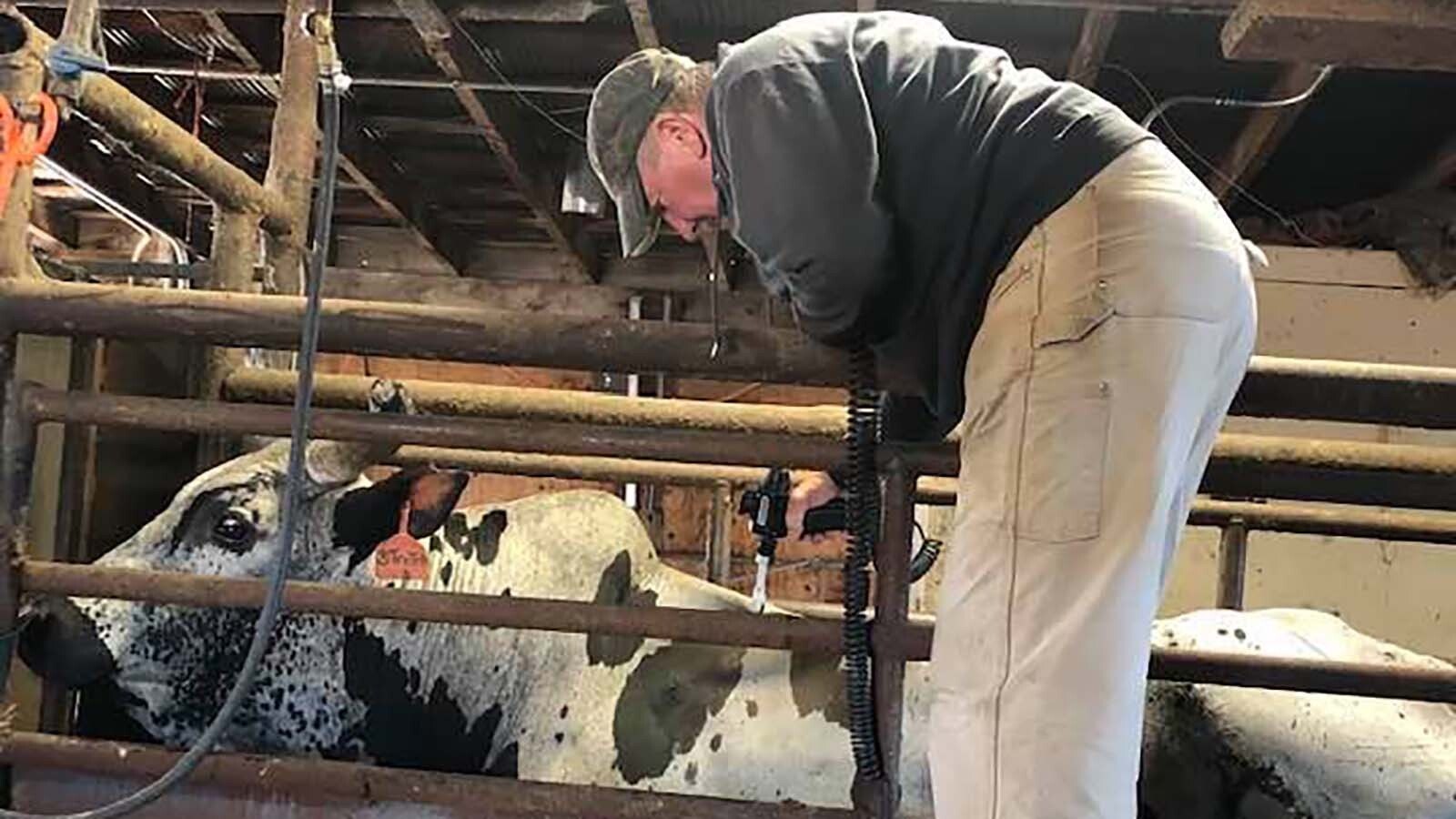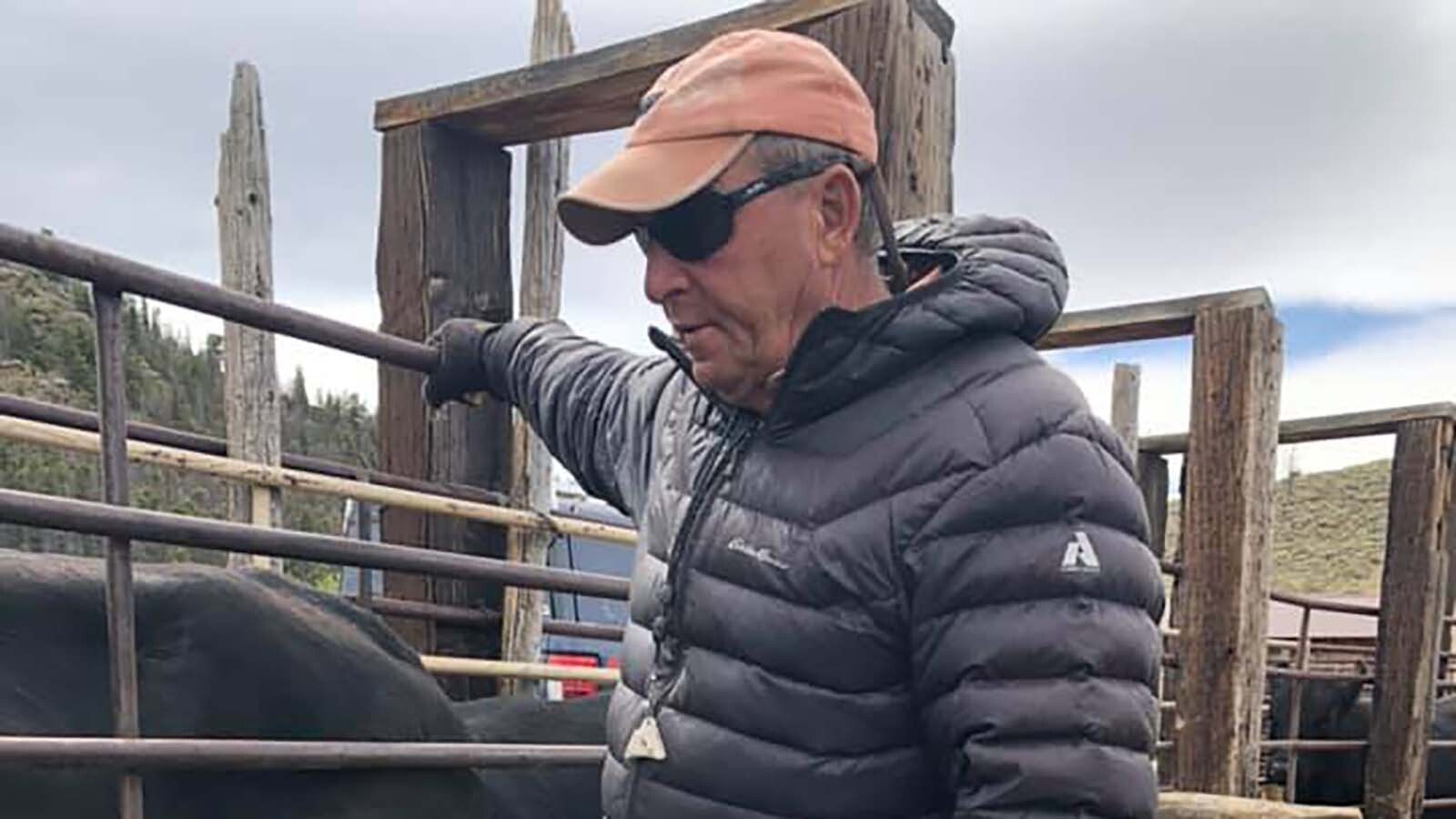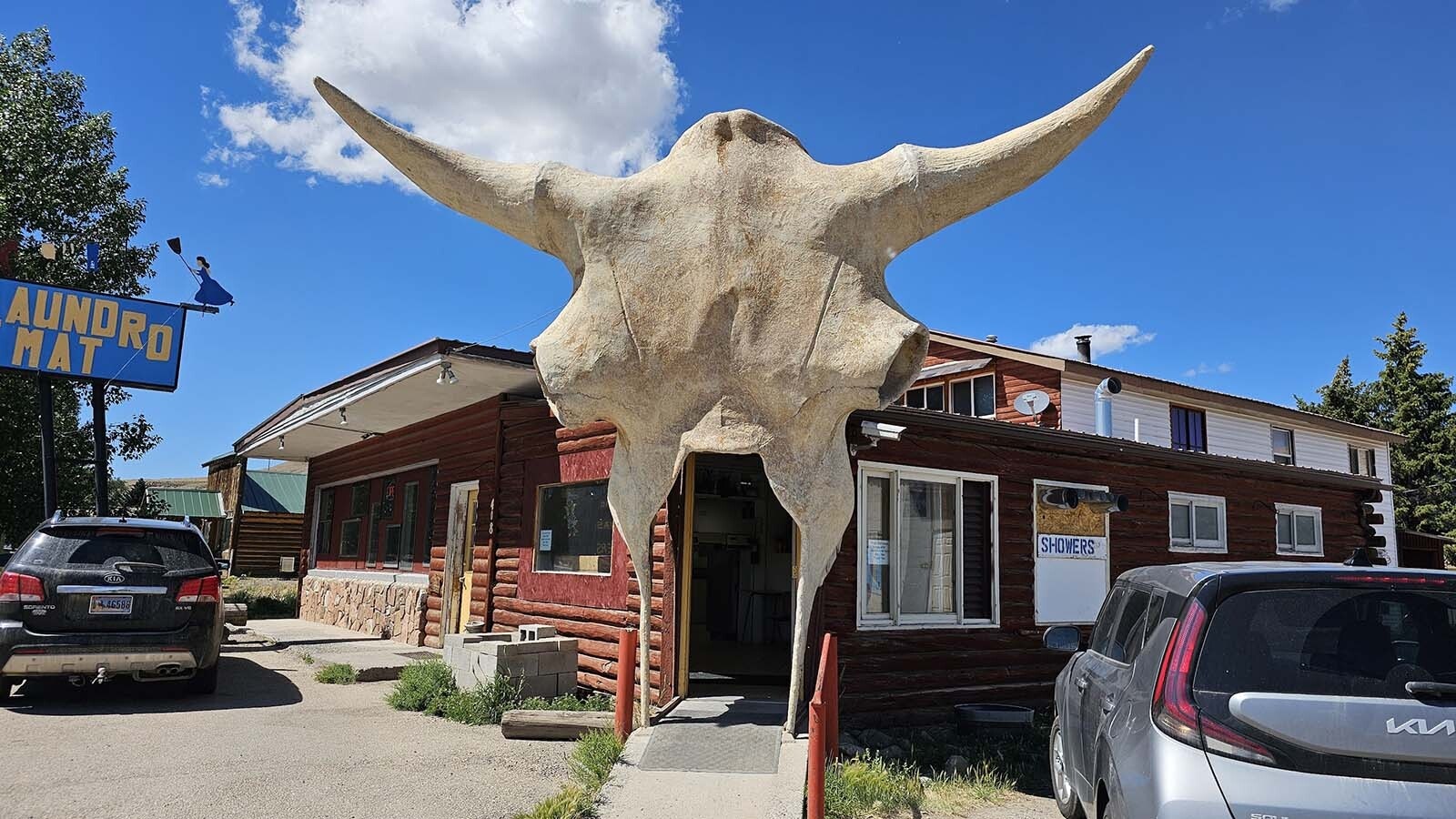Emergency Medical Technician Kayleen Harding understands the crucial role that effective communication plays in her job.
And as a member of the Chippewa Cree Tribe, she also realizes the importance of fostering trust and collaboration across cultures. Now she is working to improve communication between tribal members on the Wind River Reservation and EMS professionals through her job with Frontier Ambulance in Riverton. Her efforts recently earned her national recognition.
“I feel like it was needed because it’s just two different types of people, two different cultures and not enough understanding between the two,” she said. “So, I wanted to take the approach of building the two communities, so we can have a better understanding of each other, and we can respect each other in that good way.”
Here To Help
Originally from Rocky Boy, Montana, when her family relocated to the Wind River Reservation, Harding wanted to give back to her new community.
“I'm enrolled in the Chippewa Cree tribe, which is located on the Rocky Boy Indian Reservation,” she said. “I feel like every reservation is different, and they have their own ways of doing things, but it's been a good time living in Wyoming. I love it here.”
Wanting to help people, and to prove to herself she could excel when put in difficult situations, Harding joined the EMS team in November 2022.
“Being able to make someone’s day better, being able to make them smile on their worst days and trying to brighten the mood is probably my favorite thing about it,” she said of the job.
And while she hopes to make patient’s days better, during her two years with Frontier Ambulance she has learned healthy coping mechanisms for the more difficult aspects of her job.
“I go to the gym, I hang out with my friends and family, and I really do make use of my time on my days off,” she said. “I try not to pick up too much overtime. I’ve had to learn the boundaries of keeping work at work and keeping home at home and being able to find that healthy balance.”
Harding also continues to learn about both the Eastern Shoshone and Northern Arapaho tribes that make up the seventh-largest reservation in the U.S.
“Being able to meet different peoples of both tribes, I feel like I learn more every day,” she said. “I'm still growing, but I feel like I’ve learned a lot just being here.”
Building A Bridge
One of the things she’d noticed as part of her job was the lack of understanding between emergency services and many Native Americans.
According to the National Institutes of Health, differences in communication styles between Native Americans and healthcare providers has been identified as a barrier to quality care. Differences in patient/provider values and experiences can also influence how patients discuss symptoms, what they feel comfortable sharing and their preferences for communication.
Wanting to build a better bond between the two communities, she decided the best way to get the groups together was to have an ambulance on standby at an important cultural event, the 64th Eastern Shoshone Indian Days Powwow last June in Fort Washakie.
Frontier Ambulance covers all 9,266 square miles of Fremont County, the second largest in the state. This can lead to long wait times for emergency services, so having EMS on standby at an event can be critical.
“When you have to drive the 20 minutes from Lander to Riverton, or the 25-30 minutes it takes to get to Fort Washakie, it takes time,” Frontier Director of Operations Diane Lane said.
Harding put together a proposal and presented it to the Eastern Shoshone Business Council.
While the business council has called for EMS standby in the past for rodeos and relay races, they’ve never had it for a powwow.
“When you have so many people in a small, condensed space like that anything can happen,” Lane said. “You want EMS medical services close by, and when you're 25 minutes from a hospital, that seems like forever when you're waiting for an ambulance to get to you out there.”
Harding also wanted to have a booth at the event and use the opportunity to educate both tribal members and her colleagues on cultural differences, promoting mutual understanding and respect. Her idea was approved.
“Being able to get them to see the vision and what could happen out of this was an accomplishment for everyone,” she said. “We were able to give the community the opportunity to meet some of the paramedics and some of the EMTs that worked with Frontier, and so that way Frontier was also able to meet some of the community members.”
During the event, Harding also showcased her skills as an athletic trainer, because in addition to her work as an EMT, Harding is pursuing a degree in kinesiology. She began her college journey at Casper College in athletic training before transferring to Central Wyoming College and graduating with a Meta Major in Health Science. She then transferred to Black Hills State University.
“I’m a senior, but I put my schooling on hold because I want to see where this EMS career can take me,” she said.
The booth allowed powwow attendees to ask a variety of questions as well, from how to best manage diabetes or high blood pressure, to what happens when you call 9-1-1.
“What is the process? What's going to happen? Not a lot of people know what happens when you do call 911, so everyone had the opportunity to ask whatever questions that they had,” she said. “You need to get straight to the point, especially if you're in the heat of the moment when an emergency is happening. We were able to somewhat coach them, give them the education they needed to make sure they get the correct services there.”
Most of her Frontier coworkers had never been to a powwow and enjoyed the experience as well.
“It was being able to provide that safe place for them to ask questions too, because there's no stupid questions,” she said. “I think they walked away with a positive experience.”
Above And Beyond
For her work, Harding was selected as an American Ambulance Association Stars of Life recipient. The Stars of Life Award highlights EMS professionals who go above and beyond in their service to the community.
“I was dumbfounded to be nominated and then to be a recipient of this amazing award,” she said.
Harding received her award in Washington, D.C., last month where she had the opportunity to meet with members of Wyoming’s Congressional delegation, among other federal lawmakers.
“It was all new to me,” she said. “That was my first time on a plane and being exposed to that type of humidity. There were 143 recipients this year who received the Stars of Life, so it was great being able to talk with those different providers.”
Thanks to the work put in by Harding, Lane said she is now in regular contact with a few tribal members, and they are working “to make [EMS services] better for the reservation moving forward.”
And while there are no concrete plans for future events, Harding’s goal to continue to bring the community together remains.
“I feel like there's a lot of things that could come about,” she said. “There's going to be opportunities to make the community better in Fremont County, it's just a work in progress right now.”








